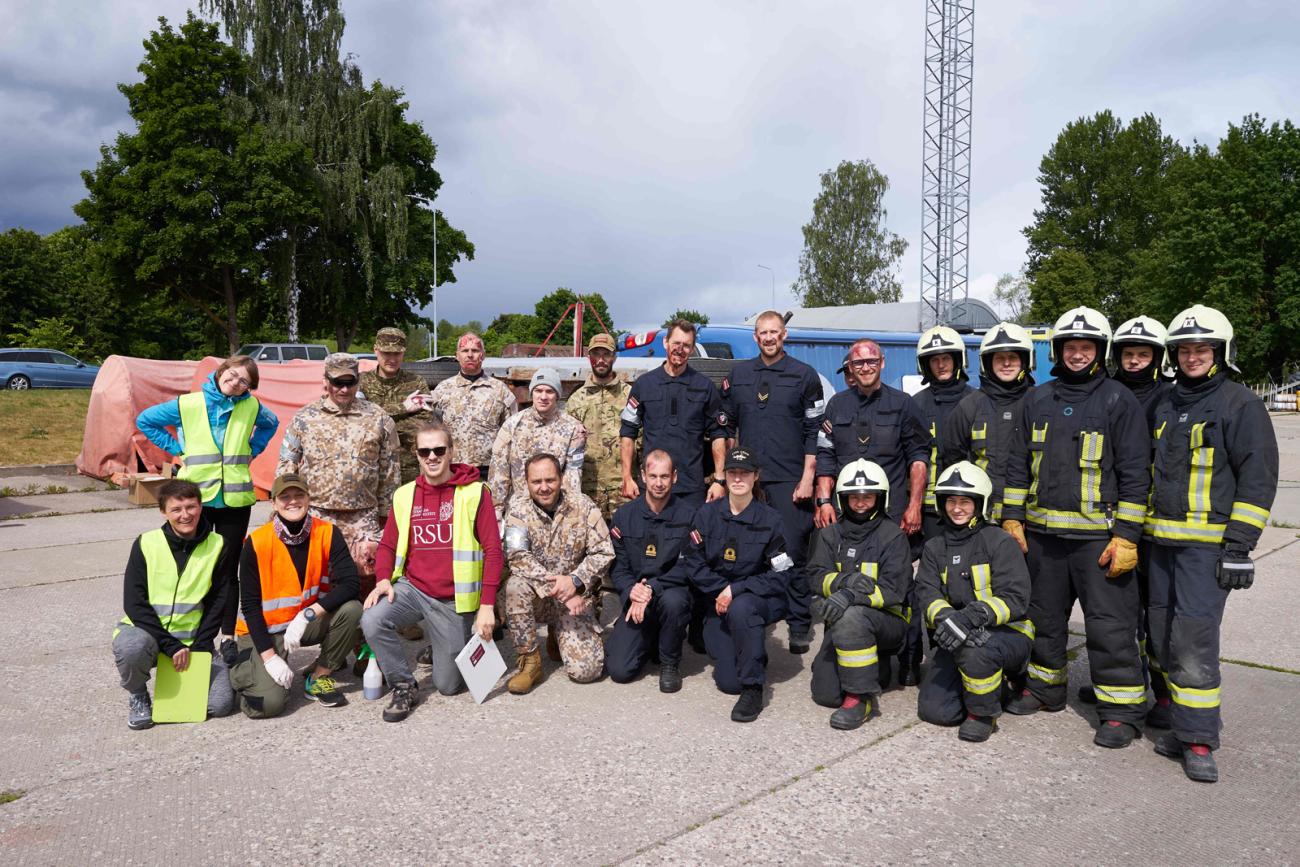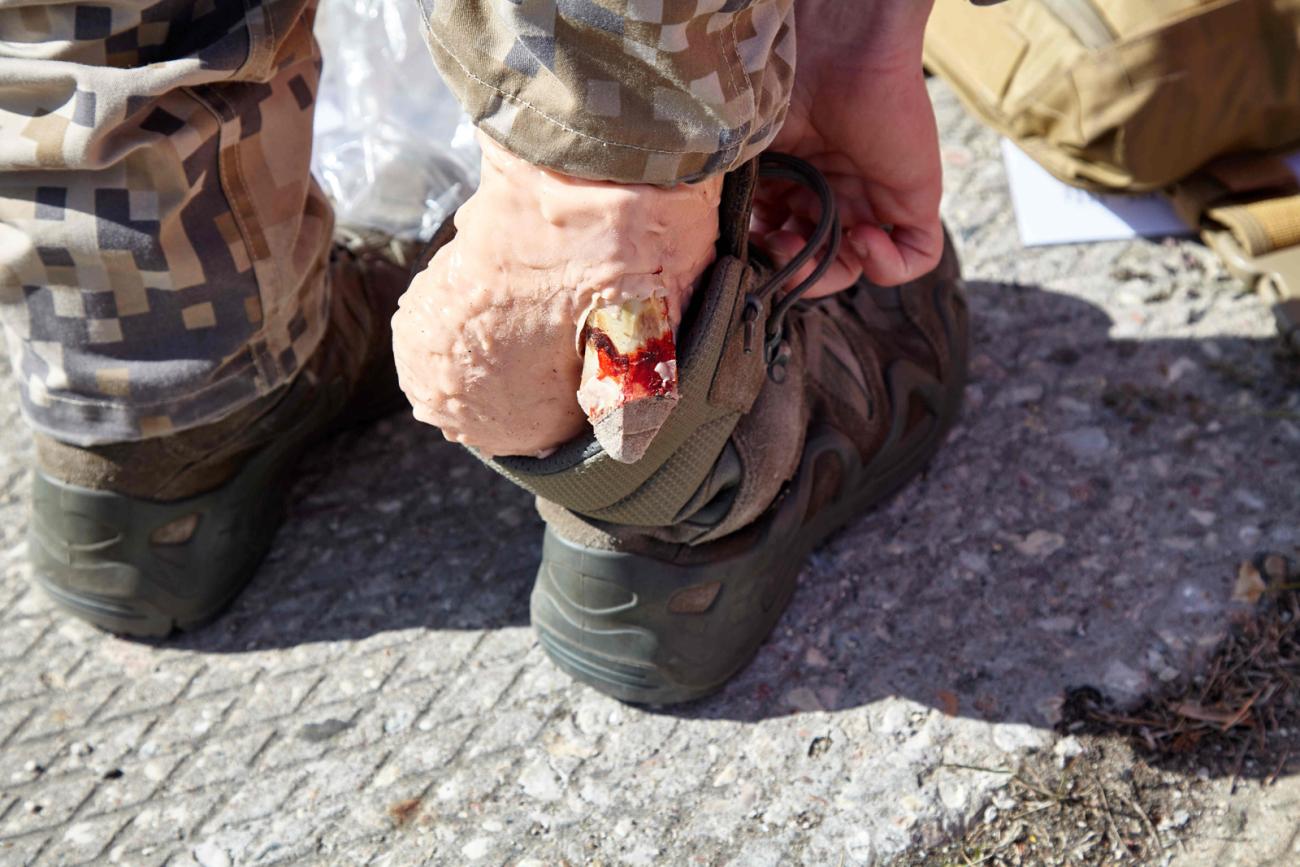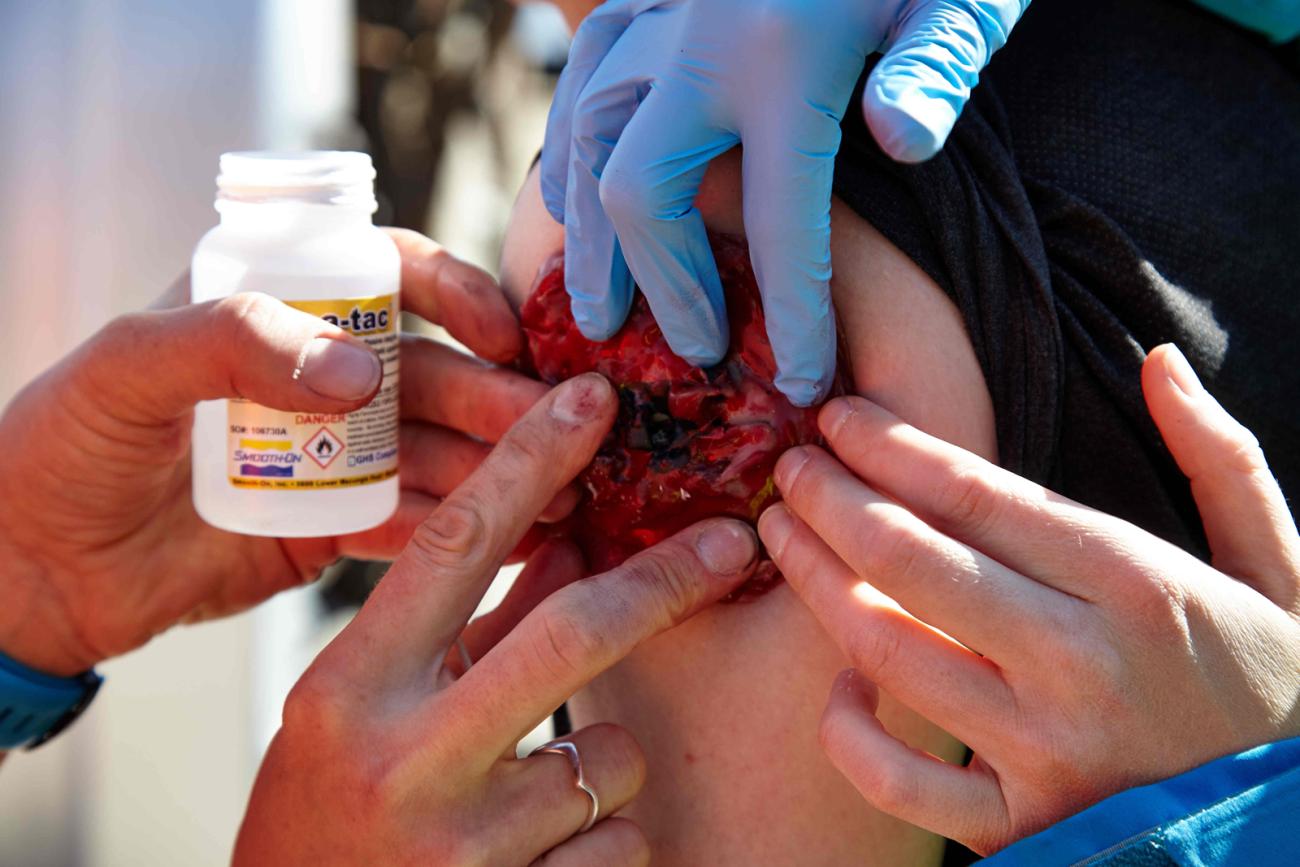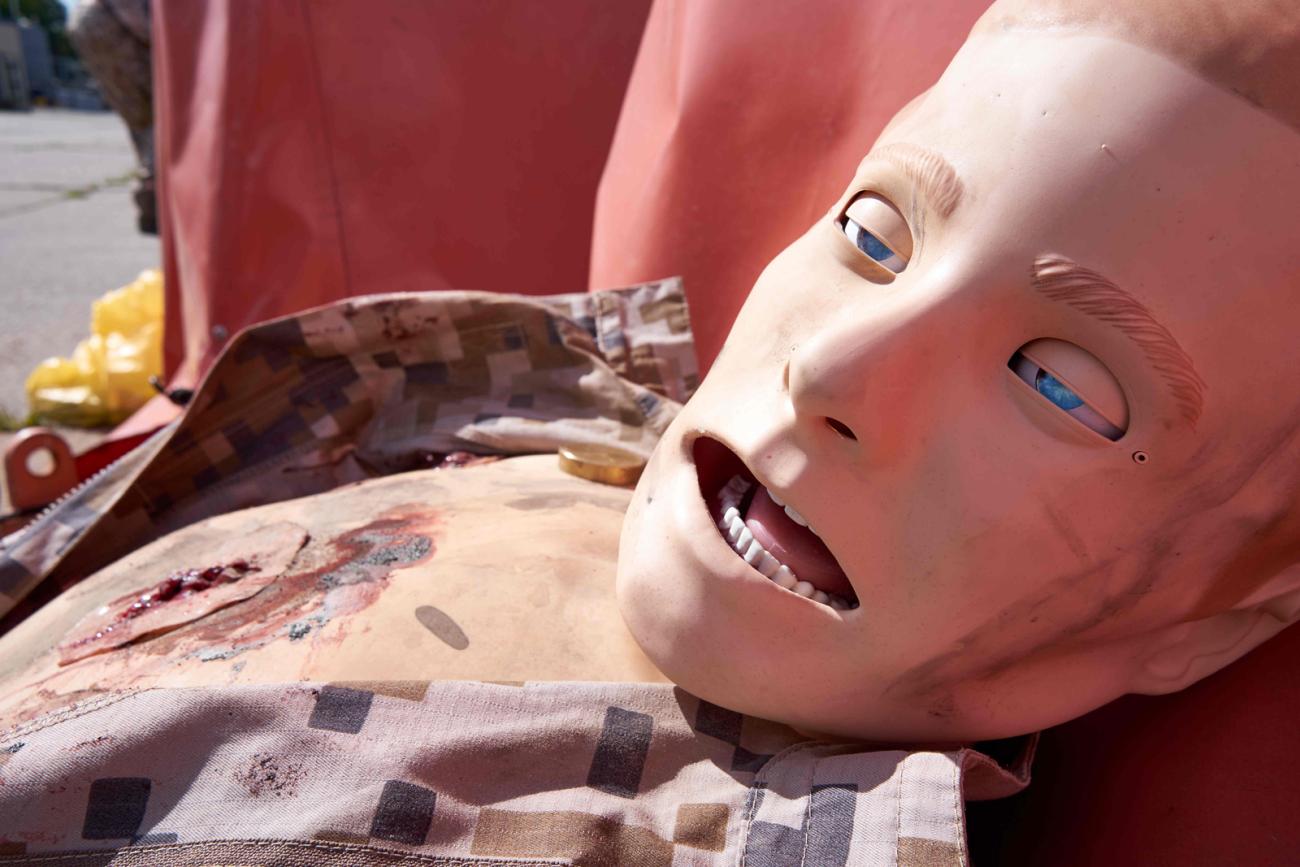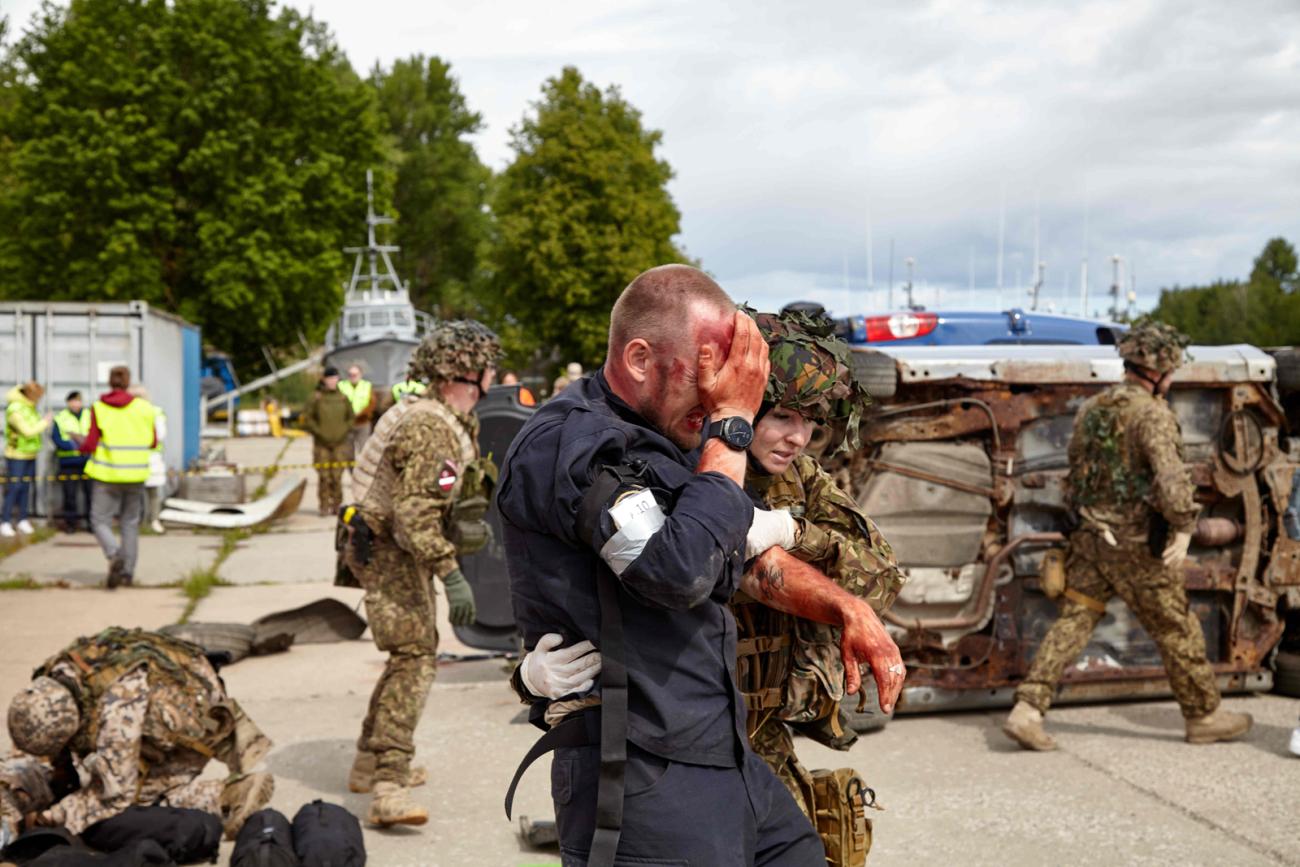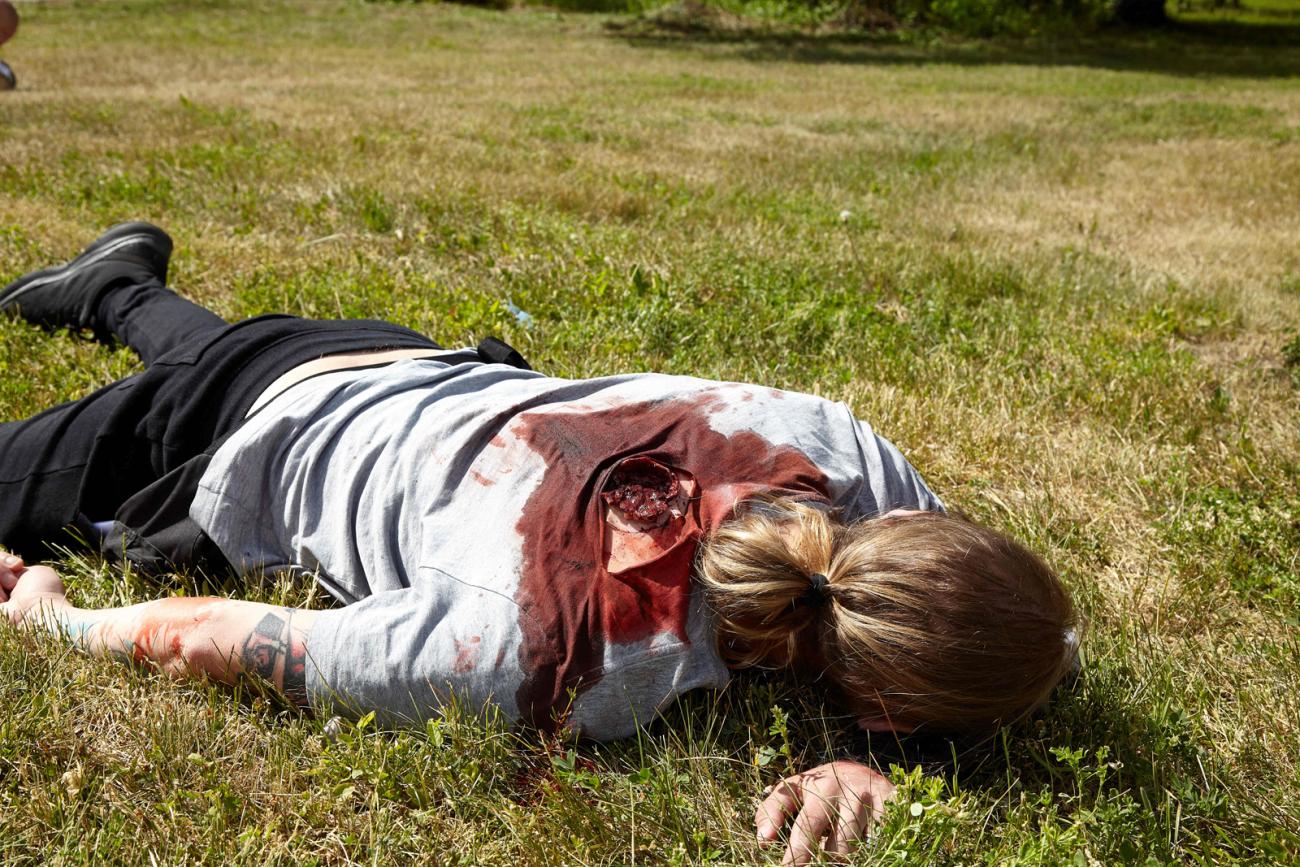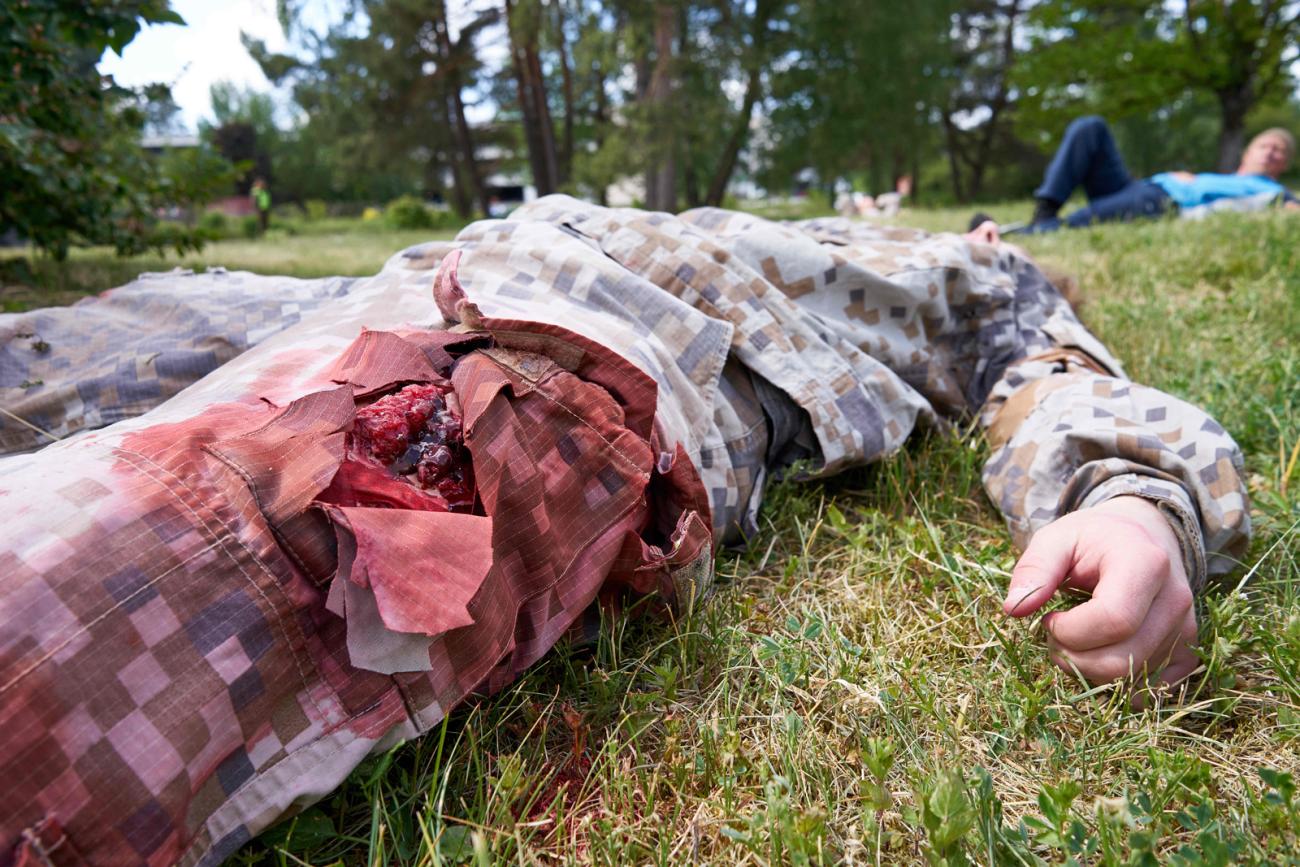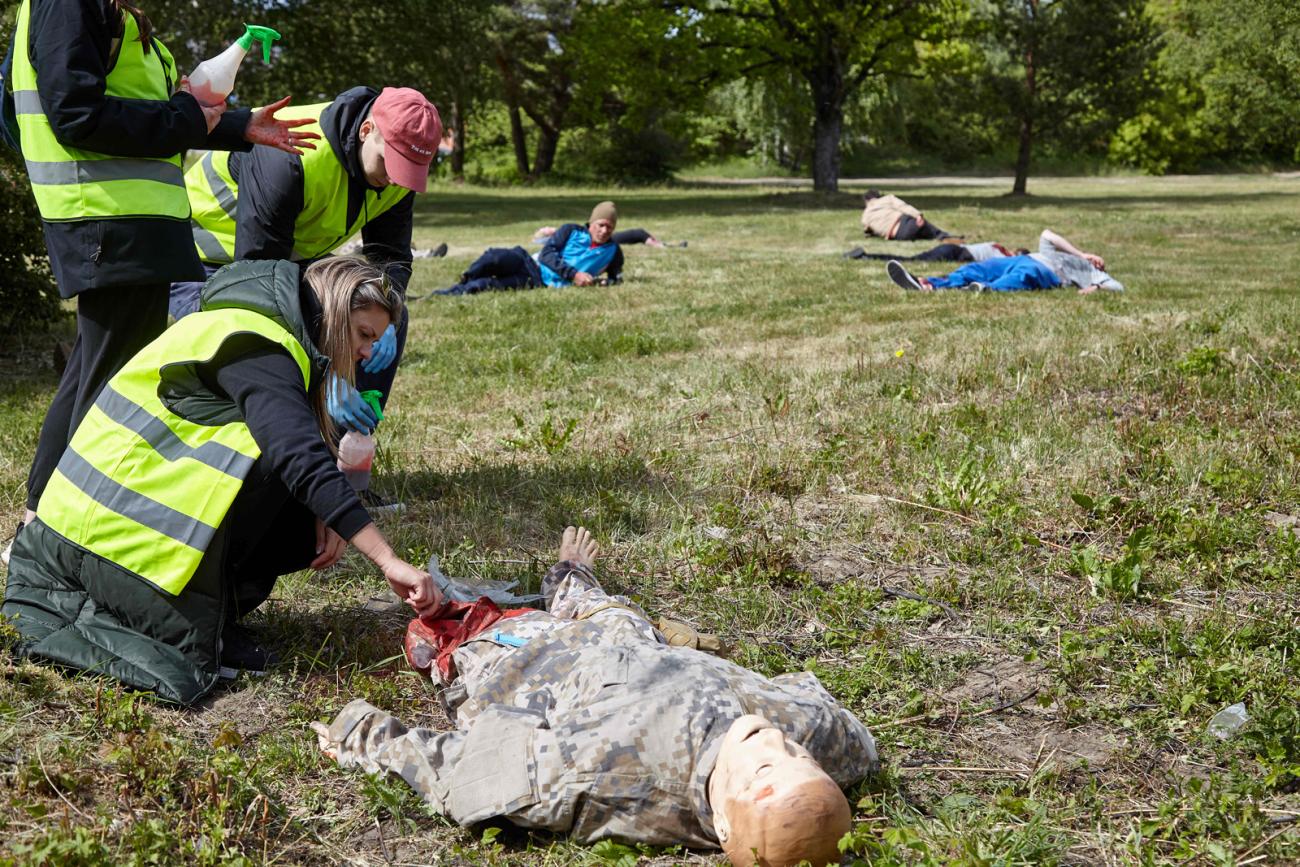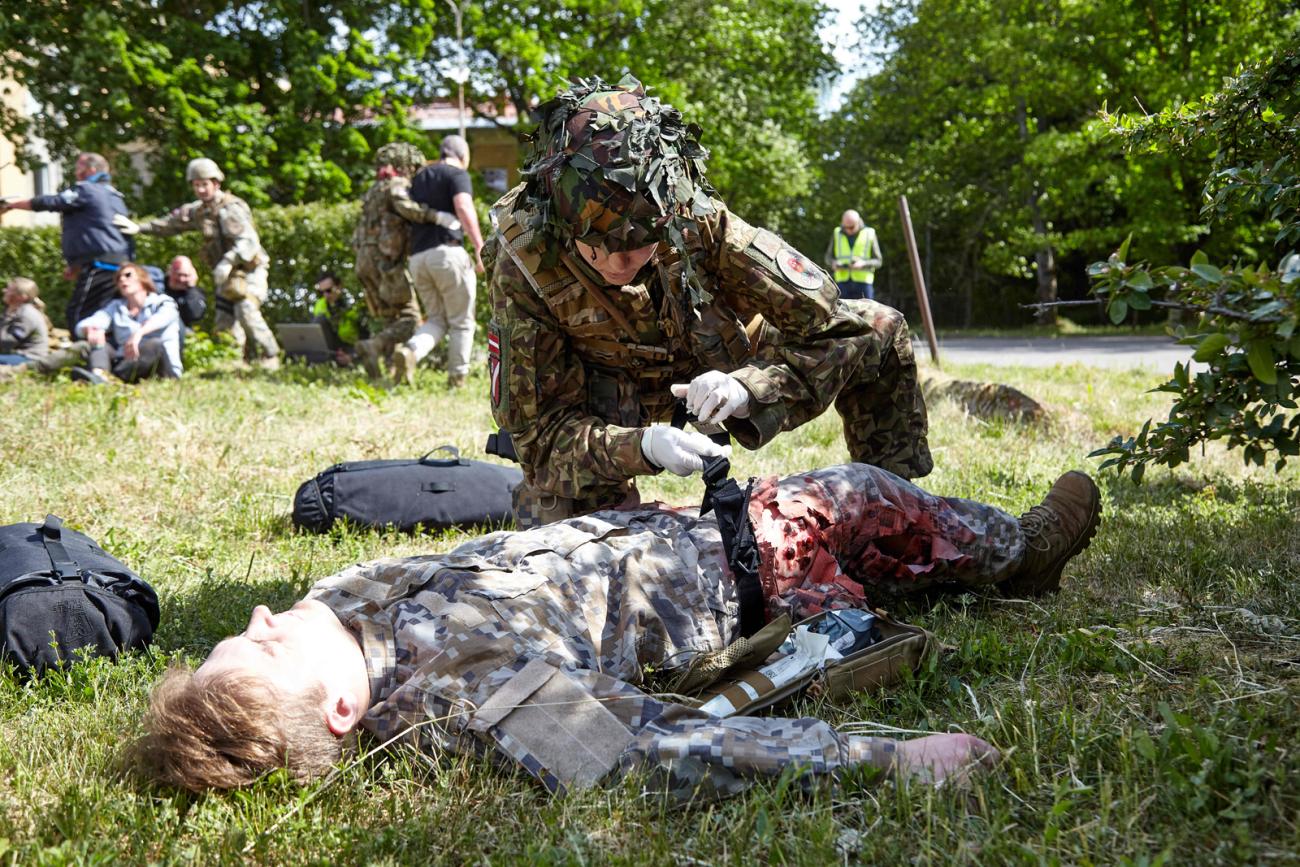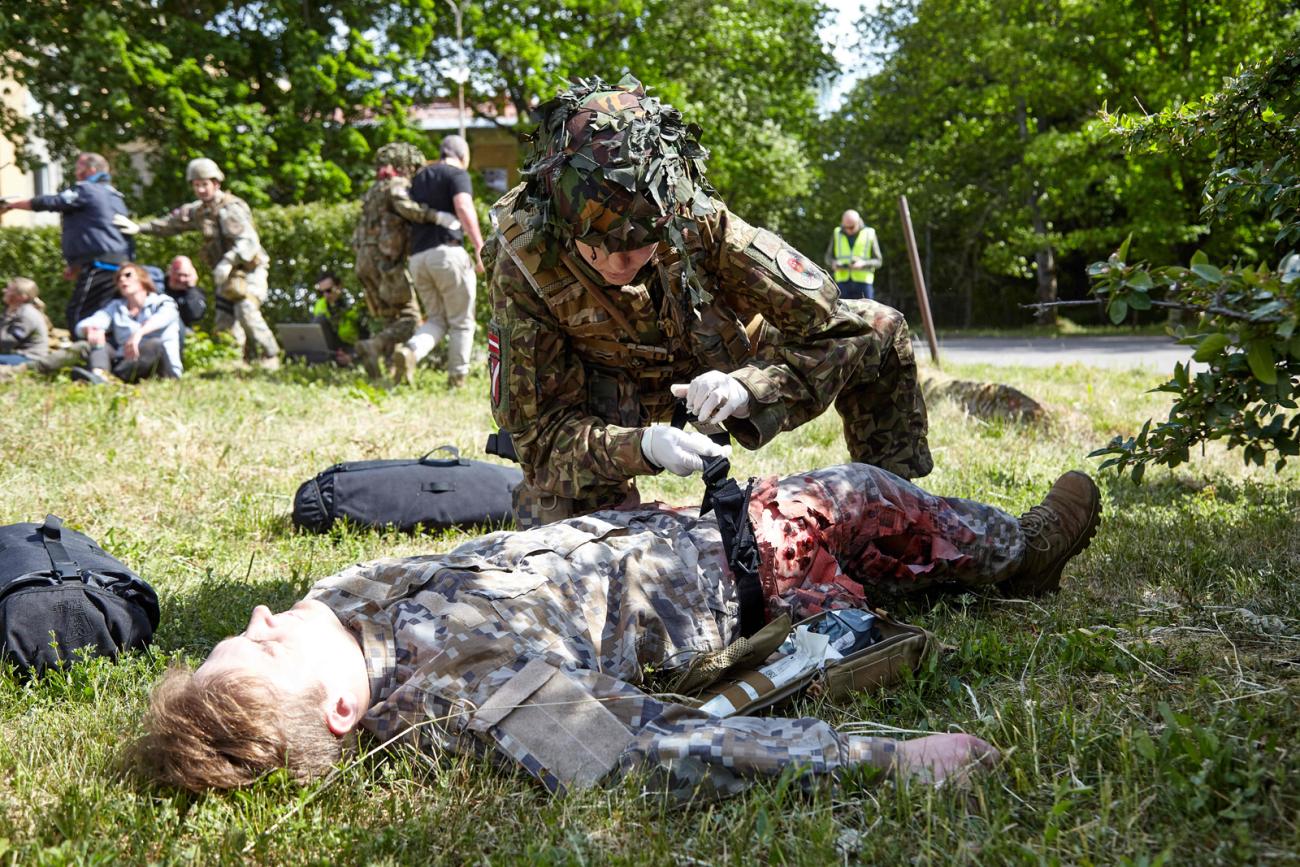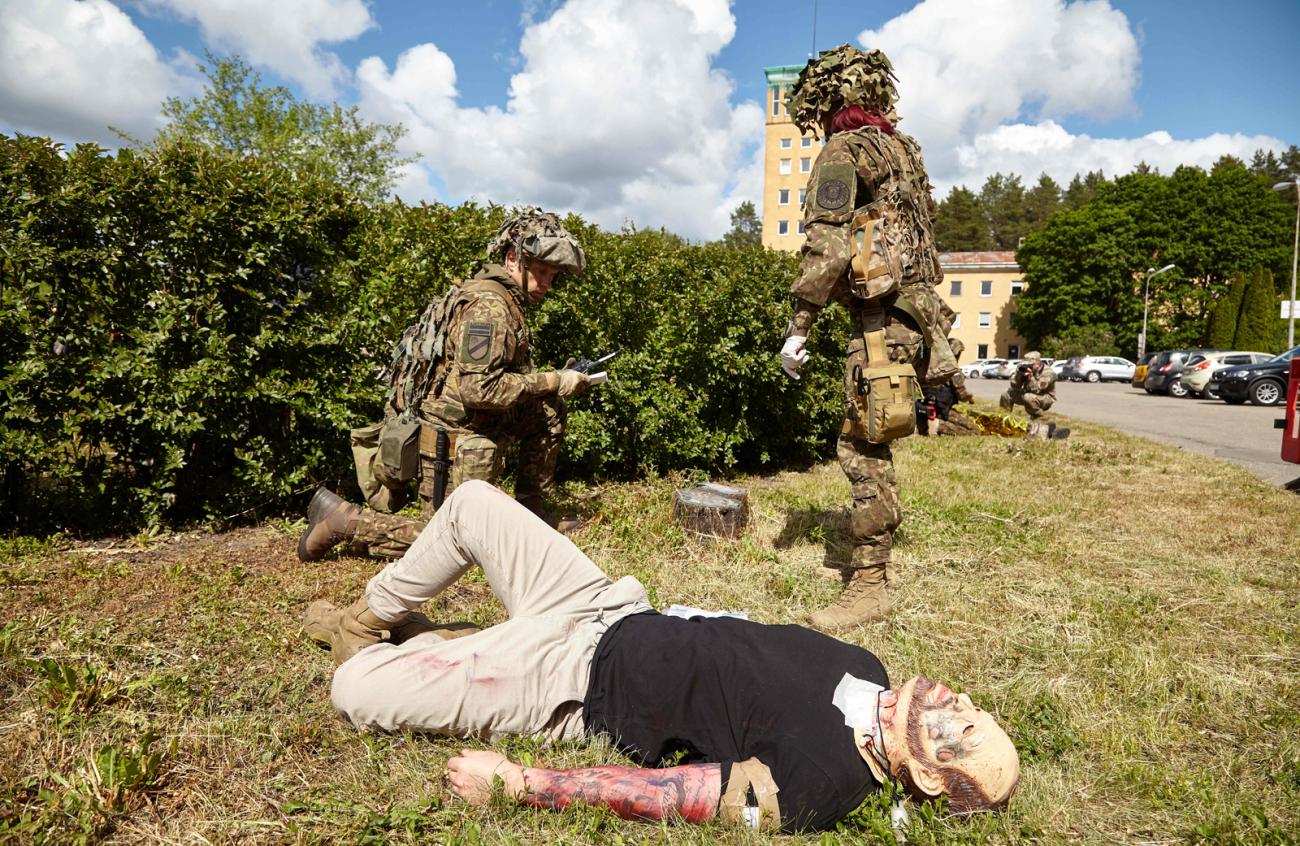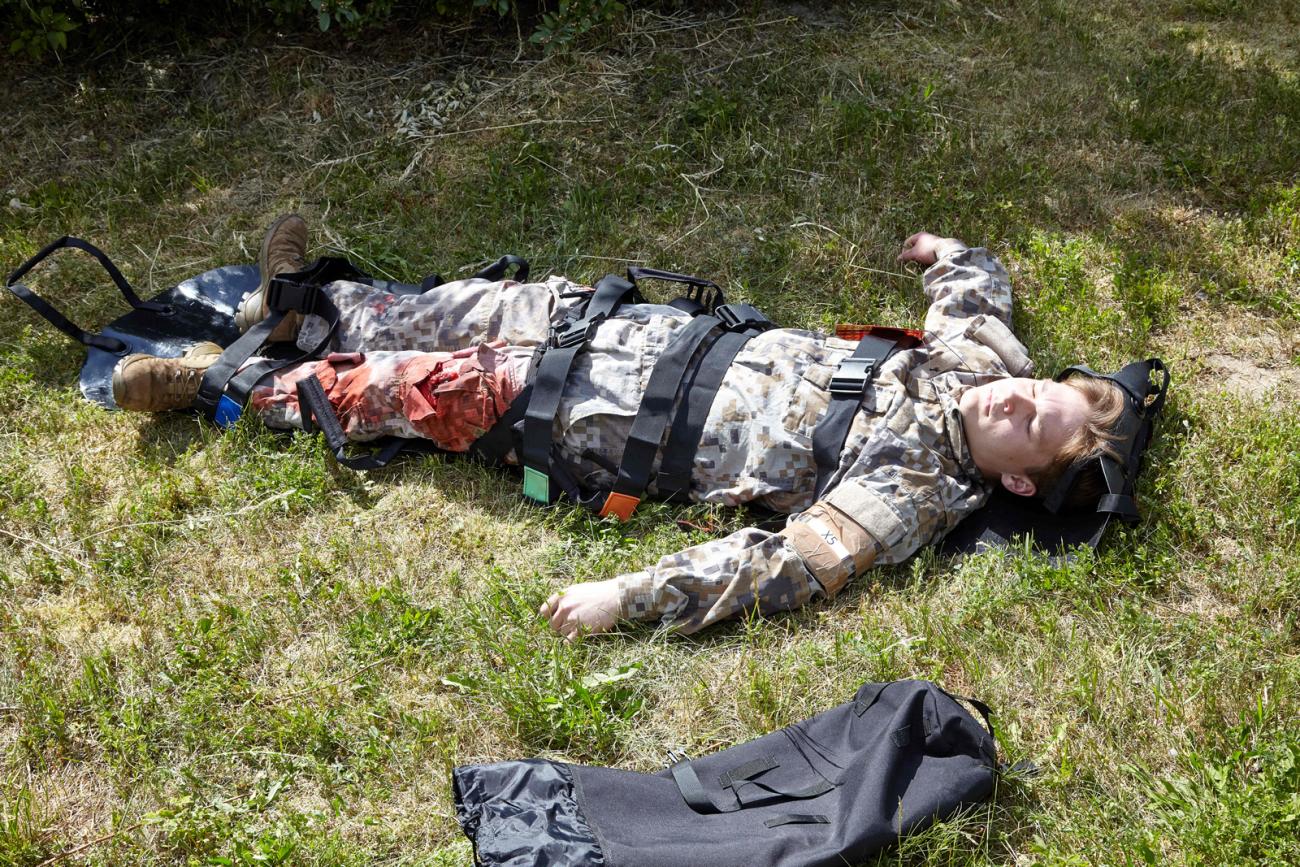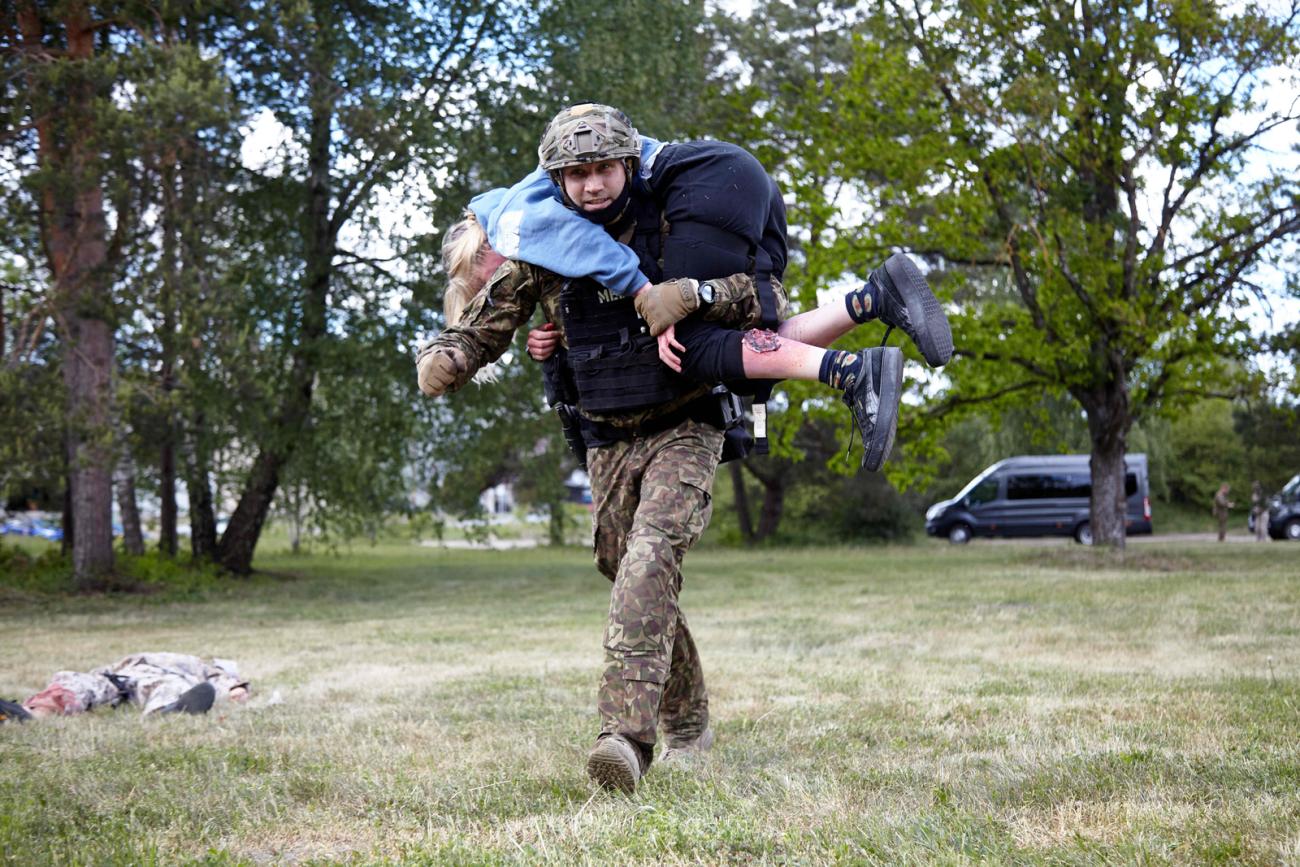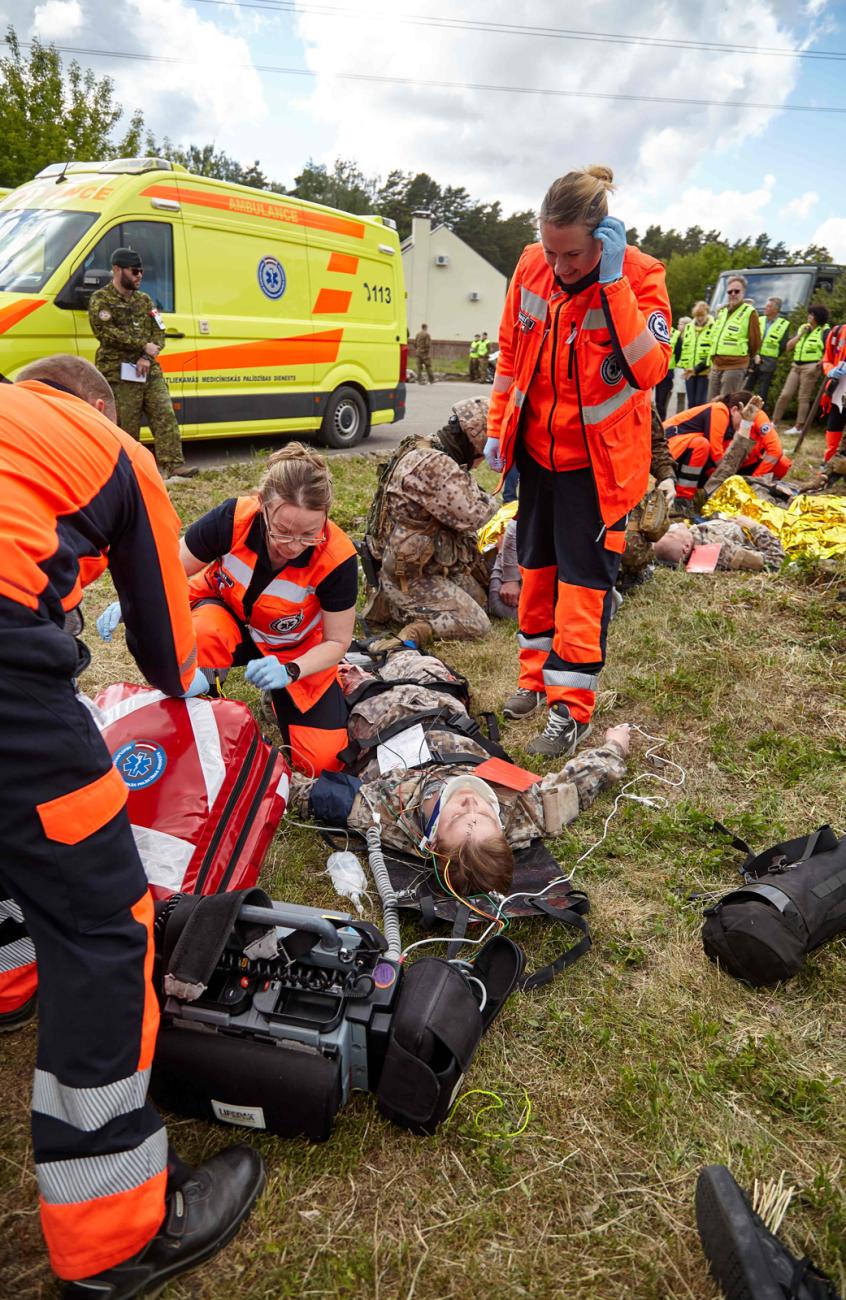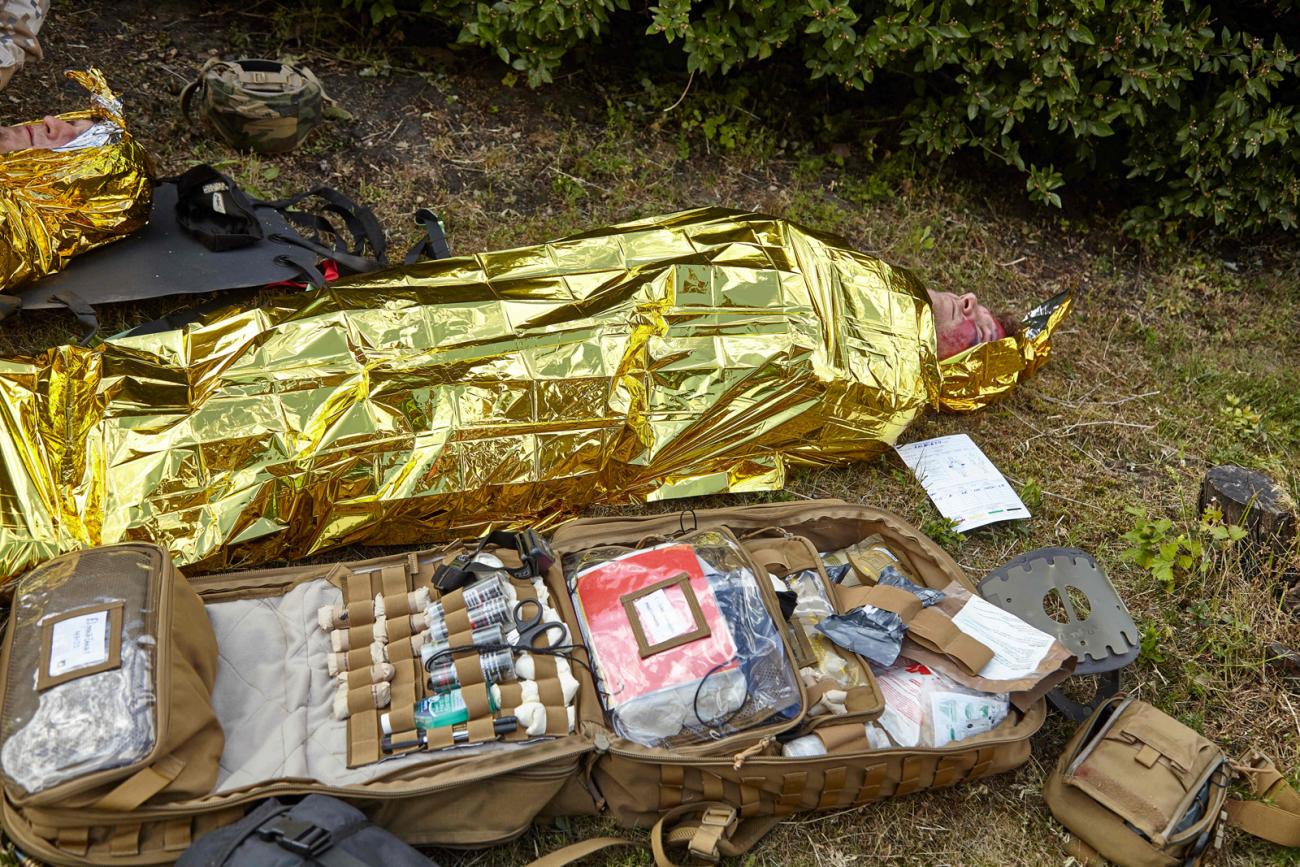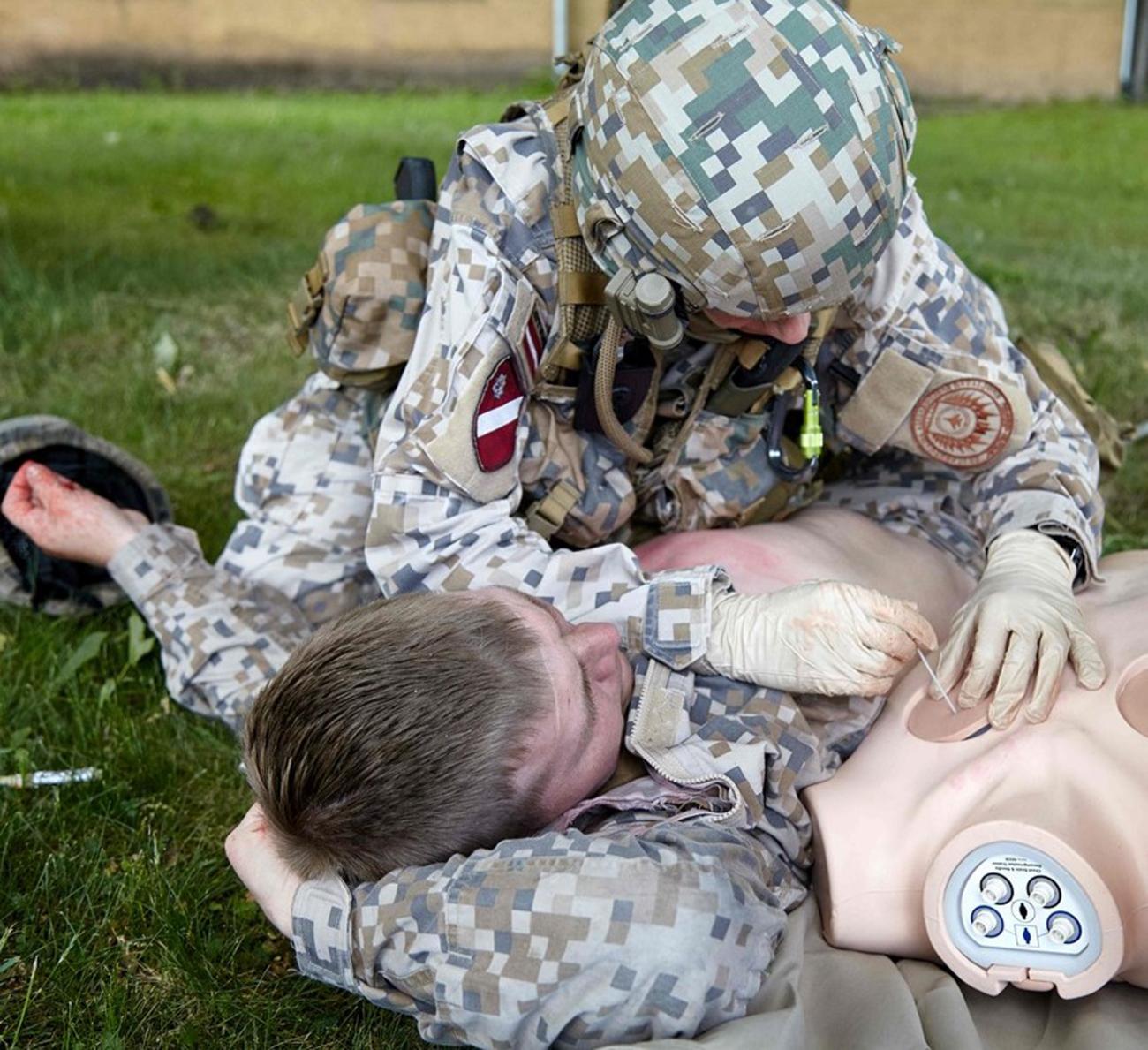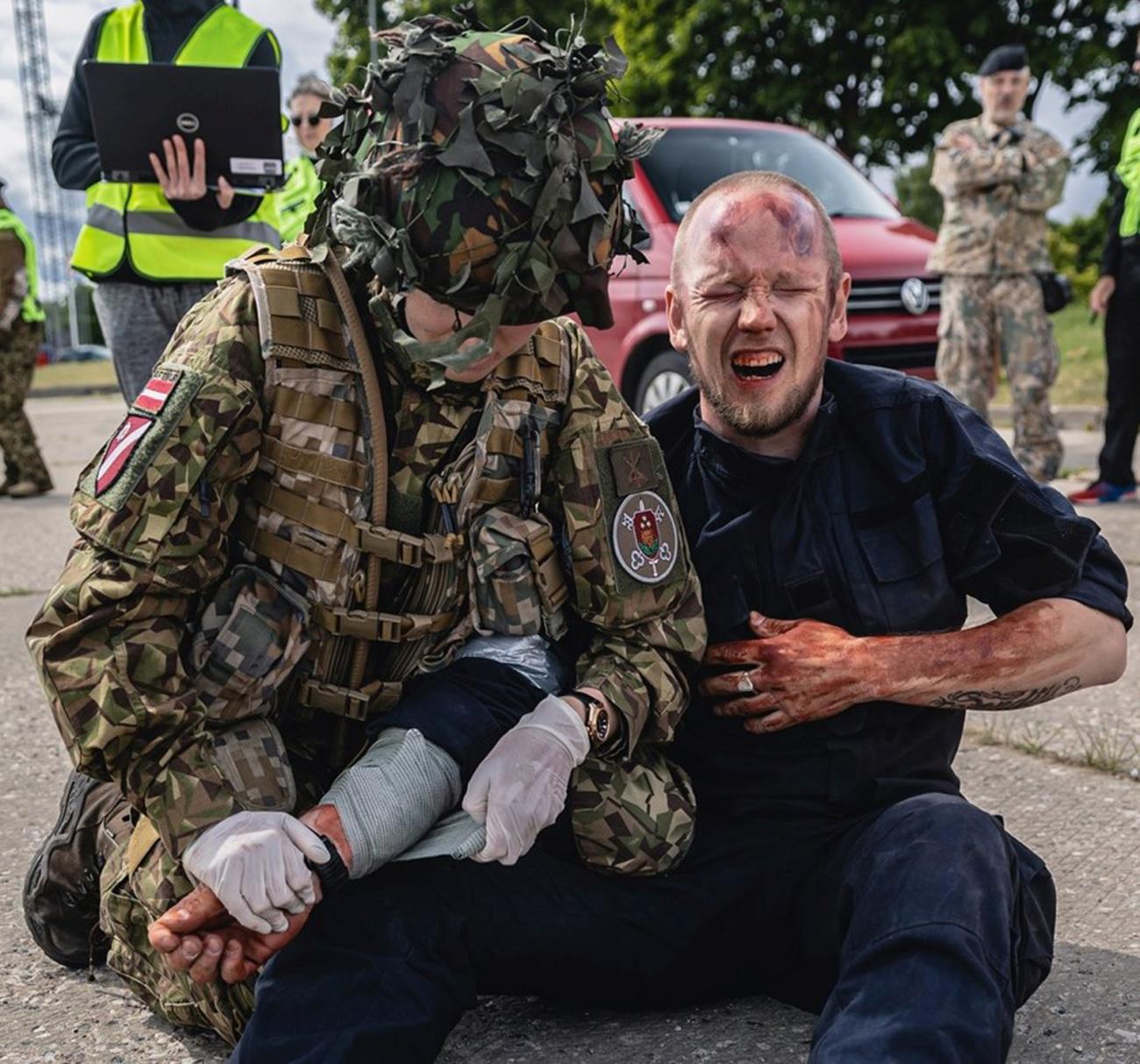METC participates in civil-military medical exercise Panaceja 2023
In early June, the civil-military medical exercise Panaceja 2023 took place in and around Riga. The aim was to test the readiness of the 1st Riga Brigade of the National Guard to provide medical assistance in the event of a military threat with a large number of casualties. The cooperation between the responsible services and medical institutions was improved during the exercise in order to strengthen the Latvian defence system.
Soldiers of the 1st Riga National Guard Brigade, the Emergency Medical Service (EMS), the State Fire and Rescue Service (SFRS), Riga East Clinical University Hospital (RECUH), Riga 2nd Hospital, the State Police (SP), Riga Municipal Police (RMP), as well as the Rīga Stradiņš University (RSU) Medical Education Technology Centre (METC) participated in planning and implementing the exercise. The METC had to develop simulated scenarios, create injury moulages, prepare simulated casualties, and provide simulation technologies and solutions.
Planning for this large-scale exercise started in December 2022. Captain Jūlija Rombovska, Chief Medical Officer of the 1st Riga National Guard Brigade Medical Unit Management Group, explains that in light of current events in the world the proposal to conduct a joint civil-military exercise to test capabilities and mutual cooperation in crisis conditions was put forward during a meeting with the management of the RECUH. ‘Taking the experience of Dr. Aleksejs Višņakovs, Head of the Emergency Medicine and Patient Admissions Clinic at RECUH, into account, a meeting was organised with representatives of METC and an agreement was reached to support our exercise with the necessary equipment. Thus, in very short time, we established the basis for our successful cooperation,’ says Captain Rombovska.
Inga Kjakste, Coordinator of Panaceja 2023 and Simulation Resource Management Manager in the METC team, emphasises that this was a unique and important experience for the whole METC team, as this was the first time that the METC was involved in a simulation of this scale. ‘The METC team prepared very thoroughly for the exercise. The scenarios and injury patterns were matched to those that occurred in Ukraine at different stages of the war. The involvement of the METC in Panaceja 2023 demonstrated the current role of civil-military cooperation, especially in military medicine. We are happy that we were able to support the National Armed Forces in developing a simulation of life-like incidents,’ adds Kjakste.
For the purposes of the exercise, scenarios for seven different incidents of national threat in the vicinity of Riga were developed. The incidents involved 130 members of the National Guard, SFRS cadets, Navy cadets, and other units.
The METC provided the preparation of simulated victims by creating role descriptions, conducting briefings, and preparing custom-designed silicone wounds and moulages.
The METC team created approximately 200 silicone wounds and 37 moulages and applied make-up to 125 victims on the day of the training that simulated various types of injuries (e.g. puncture wounds and cuts to arms and legs, head and eye injuries, glass shards embedded in the skin, burns, shrapnel and splinter wounds, etc.).
Representatives of the National Armed Forces (NAS) expressed their appreciation for the contribution of the METC. Andreta Slavinska, Acting Director of the METC, said: ‘This was an opportunity to demonstrate our readiness and capacity to participate exercises like this by integrating simulated elements. This experience allowed us to understand the specific features of military medicine and to see the directions that can be developed in the context of both inter-institutional cooperation and education. This will contribute to the development of the field of military medicine at RSU.’
A group of observers from the participating institutions also attended the exercise. RSU was represented by the Head of the Military Medicine Lecturer Group, Assoc. Prof. Vladimirs Voicehovskis and lecturers Assoc. Prof. Liāna Pļaviņa and Dr. Jānis Mičāns. ‘This exercise was organised at a high level, and I would like to commend the work of the METC. The simulated incidents were of high quality and as close to reality as possible. The objective of the exercise was achieved by identifying weaknesses both in inter-departmental communication and in the lack of practical teamwork skills of the rescuers. I believe that such exercises are valuable and should be repeated regularly on different scales to consolidate the theoretical knowledge gained,’ said Prof. Voicehovskis.
Currently, the METC is actively involved in developing a course on the basics of military medicine. In addition, six specially trained instructors have been prepared in cooperation with NAS services to implement the study course in at RSU as a team of military medicine lecturers.
Related news
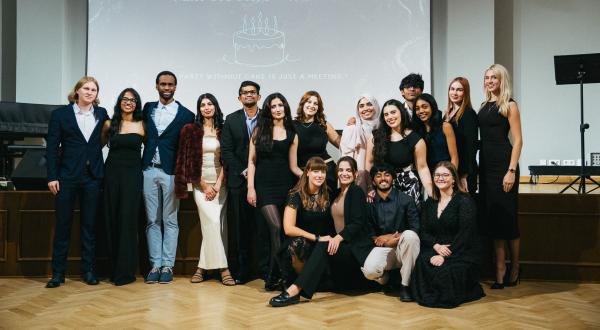 13th anniversary of RSU’s International Student Association celebrates accomplishments and communityFor Students, News
13th anniversary of RSU’s International Student Association celebrates accomplishments and communityFor Students, News
